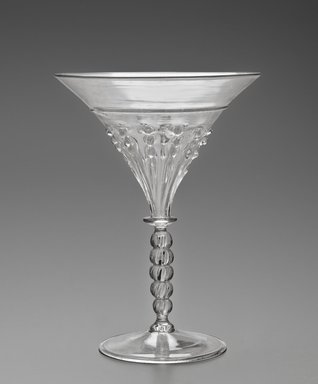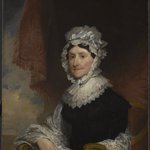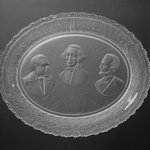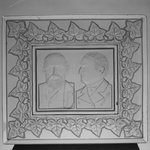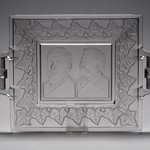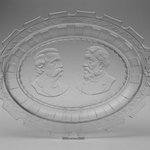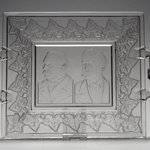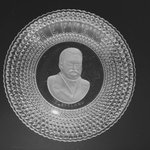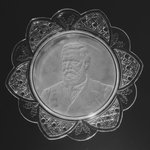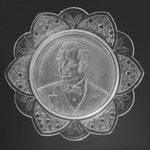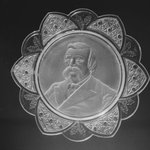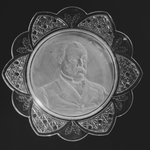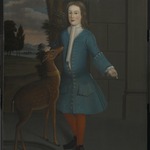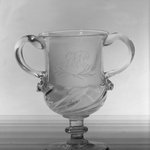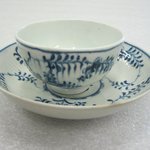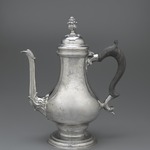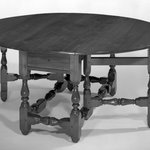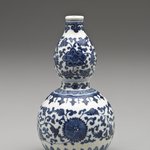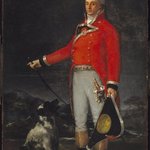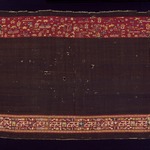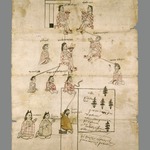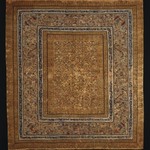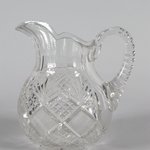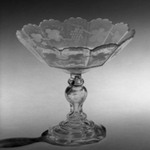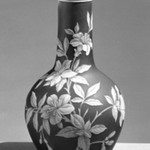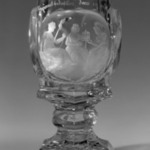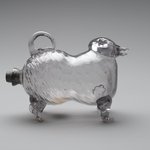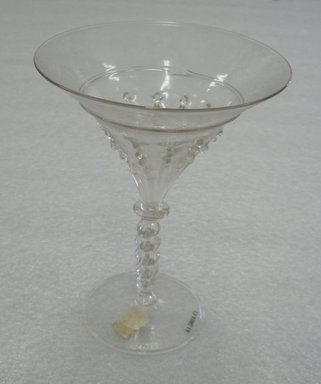
Glass
Decorative Arts and Design
VESSELS AND TRAYS FOR SERVING WATER
In the rarified cuadra de estrado, even the consumption of water was an elaborate ceremony. Guests were served fresh water, accompanied by sweet biscuits for dipping, on large serving trays or round silver salvers. Imported glasses from Venice and La Granja (outside Madrid) are often listed in colonial inventories along with aromatic clay beakers from Tonalá, Mexico, known as búcaros de Indias, which were particularly prized and widely collected. Because of their porous clay, these vessels slightly chilled the water and also imparted a particular earthy fragrance that was much appreciated. The fascination with búcaros de Indias was so extreme that ladies ate little pieces of them to savor the taste.
RECIPIENTES Y BANDEJAS PARA SERVIR EL AGUA
En la sofisticada cuadra de estrado, incluso el consumo del agua era una ceremonia elaborada. A los invitados se les servía agua fresca, acompañada por bizcochos dulces para remojar en ella, sobre grandes bandejas de servir o sobre salvas redondas de plata. Los vasos importados de Venecia y de la Real Fábrica de Cristales de La Granja (en las afueras de Madrid) a menudo aparecen catalogados en los inventarios coloniales junto a las muy valoradas y extensamente coleccionadas copas de arcilla aromática de Tonalá, México, conocidas también como búcaros de Indias. Gracias a su arcilla porosa, estas vasijas enfriaban ligeramente el agua y le impartían una fragancia terrosa particular que era muy apreciada. La fascinación con los búcaros de Indias llegó a tales extremos que las damas comían pequeños trocitos de ellos para saborear su gusto.
In the rarified cuadra de estrado, even the consumption of water was an elaborate ceremony. Guests were served fresh water, accompanied by sweet biscuits for dipping, on large serving trays or round silver salvers. Imported glasses from Venice and La Granja (outside Madrid) are often listed in colonial inventories along with aromatic clay beakers from Tonalá, Mexico, known as búcaros de Indias, which were particularly prized and widely collected. Because of their porous clay, these vessels slightly chilled the water and also imparted a particular earthy fragrance that was much appreciated. The fascination with búcaros de Indias was so extreme that ladies ate little pieces of them to savor the taste.
RECIPIENTES Y BANDEJAS PARA SERVIR EL AGUA
En la sofisticada cuadra de estrado, incluso el consumo del agua era una ceremonia elaborada. A los invitados se les servía agua fresca, acompañada por bizcochos dulces para remojar en ella, sobre grandes bandejas de servir o sobre salvas redondas de plata. Los vasos importados de Venecia y de la Real Fábrica de Cristales de La Granja (en las afueras de Madrid) a menudo aparecen catalogados en los inventarios coloniales junto a las muy valoradas y extensamente coleccionadas copas de arcilla aromática de Tonalá, México, conocidas también como búcaros de Indias. Gracias a su arcilla porosa, estas vasijas enfriaban ligeramente el agua y le impartían una fragancia terrosa particular que era muy apreciada. La fascinación con los búcaros de Indias llegó a tales extremos que las damas comían pequeños trocitos de ellos para saborear su gusto.
MEDIUM
Glass
DATES
16th or 17th century (probably)
DIMENSIONS
6 5/16 x 4 1/2 in. (16.1 x 11.4 cm) (show scale)



COLLECTIONS
Decorative Arts and Design
ACCESSION NUMBER
13.1080.14
CREDIT LINE
Museum Special Fund
MUSEUM LOCATION
This item is not on view
CAPTION
Glass, 16th or 17th century (probably). Glass, 6 5/16 x 4 1/2 in. (16.1 x 11.4 cm). Brooklyn Museum, Museum Special Fund, 13.1080.14. Creative Commons-BY (Photo: Brooklyn Museum, CUR.13.1080.14.jpg)
IMAGE
overall, overall, CUR.13.1080.14.jpg. Brooklyn Museum photograph, 2011
"CUR" at the beginning of an image file name means that the image was created by a curatorial staff member. These study images may be digital point-and-shoot photographs, when we don\'t yet have high-quality studio photography, or they may be scans of older negatives, slides, or photographic prints, providing historical documentation of the object.
RIGHTS STATEMENT
Creative Commons-BY
You may download and use Brooklyn Museum images of this three-dimensional work in accordance with a Creative Commons license. Fair use, as understood under the United States Copyright Act, may also apply.
Please include caption information from this page and credit the Brooklyn Museum. If you need a high resolution file, please fill out our online application form (charges apply).
For further information about copyright, we recommend resources at the United States Library of Congress, Cornell University, Copyright and Cultural Institutions: Guidelines for U.S. Libraries, Archives, and Museums, and Copyright Watch.
For more information about the Museum's rights project, including how rights types are assigned, please see our blog posts on copyright.
If you have any information regarding this work and rights to it, please contact copyright@brooklynmuseum.org.
RECORD COMPLETENESS
Not every record you will find here is complete. More information is available for some works than for others, and some entries have been updated more recently. Records are frequently reviewed and revised, and we welcome any additional information you might have.
